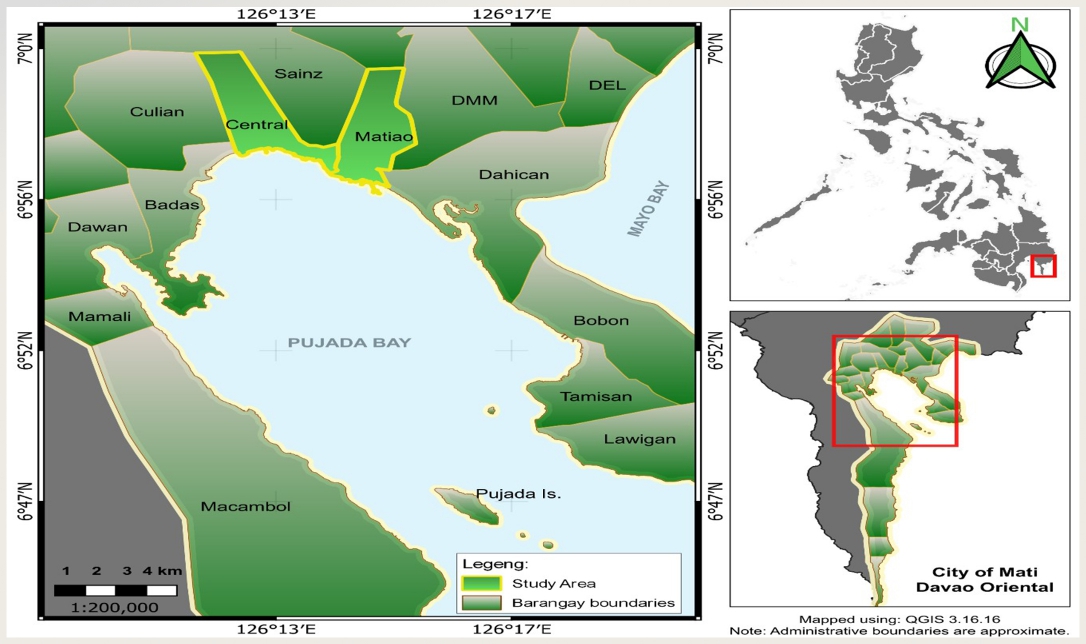Solid Waste Management awareness and practices in coastal communities
DOI:
https://doi.org/10.59120/drj.v15i3.247Keywords:
City of Mati , coastal communities, SWM awareness and practices, waste managementAbstract
Effective Solid Waste Management (SWM) is paramount for environmental sustainability and public health, particularly in coastal communities. This cross-sectional descriptive study determines SWM awareness and practices among 399 households in selected coastal barangays in the City of Mati, Davao Oriental, Philippines. Employing a structured four-point Likert-type survey through KoboCollect applications, this study evaluates SWM awareness and practices while examining the impact of socio-demographic factors on these aspects. The results reveal moderate SWM awareness (X̄=2.55) and practices (X̄=2.66) in these coastal communities, indicating a baseline level of environmental consciousness and waste management efforts. However, there was lack of familiarity with legal and regulatory frameworks (X̄=1.97), including the Republic Act 9003 and local ordinances related to SWM. Notable gaps are also identified in SWM practices, mainly in waste segregation (X̄=2.55) and avoidance to waste-burning (X̄=2.56). Socio-demographic factors, such as age, educational attainment, household size, and family income, significantly influence SWM awareness and practices. These findings underscore the need for targeted educational campaigns and community engagement strategies to enhance awareness of SWM regulations. Addressing these gaps is necessary for developing effective interventions to promote sustainable waste management practices in these coastal areas, thus protecting marine ecosystems and supporting the well-being of local communities.
Metrics
Downloads

Downloads
Published
Issue
Section
License
Copyright (c) 2024 Ricksterlie C. Verzosa, Francis Jay M. Katipunan, Jose Gabriel B. Lumangyao, Emily S. Antonio

This work is licensed under a Creative Commons Attribution-NonCommercial 4.0 International License.
DRJ is an open-access journal and the article's license is CC-BY-NC. This license allows others to distribute, remix, tweak, and build on the author's work, as long as they give credit to the original work. Authors retain the copyright and grant the journal/publisher non-exclusive publishing rights with the work simultaneously licensed under a https://creativecommons.org/licenses/by-nc/4.0/.









